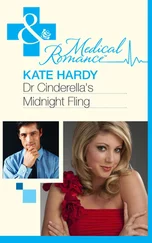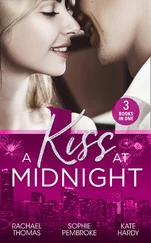And there it was, right there on the edge; there was the strangeness.
It went:
Chi-chichi chi-chichi chi-chichi bumph bumph chi-chichi chi-chichi chi-chichi bumph bumph . . .
I couldn’t immediately work out what it was. Our ignorance frightened us. We wanted a weapon.
Chi-chichi chi-chichi chi-chichi went the sound. Chi-chichi chi-chichi chi-chichi. We didn’t even have to close our eyes to hear it. Advancing, getting closer. Chi-chichi chi-chichi . . .
The buzzing neon light gave up, popped and went out, shrivelling from sodium orange brightness to a blue shimmer in its core before darkness took it. It’s easy to forget, in the city, how dark real darkness can be.
I started to walk. Climbed over the chain. Stepped out into the street.
There was someone at the far end, a few hundred yards off, smothered in shadows.
They were looking at me.
I turned in the other direction. If my shoes had been my own, I would have run.
I was in Willesden.
Christ.
Willesden is a nowhere-everywhere.
It isn’t close enough to the centre of London to be inner city, nor far enough away to be suburb. It isn’t posh enough to be well tended or have a single class of citizen, nor is it squalid enough to be dubbed “action zone” by a righteous local government bureaucrat. It doesn’t have a unique ethnic character, but instead a mix of all sorts pile in from every corner, from tenth-generation Englishman dreaming of the south of France, to third-generation Afro-Caribbean who has never seen the equatorial sun. It sits astride a maze of transport links, buses, trains and canals, most of which are passing through to somewhere better. No one quite knows where Willesden begins or ends.
You can find anything you want in Willesden, so long as you don’t go looking for it.
I would not have chosen to be in Willesden of my own accord. But we’d made a promise, and our promise had taken us here. Then a phone had rung in a garage and we’d answered it . . .
. . . and now there was something else on the streets tonight.
I could feel it.
Hear it.
A sound like an angry bee stuck in a jar, banging its head in regular and rapid rhythm on the glass.
Chi-chichi chi-chichi chi-chichi . . .
Cynics call it fate, romantics call it destiny, lawyers call it malign intent. No one uses the word “coincidence”. I didn’t. If you see vultures flying overhead and hear the distant sound of cannon, you don’t call it coincidence, and in this city there were plenty of scavengers that could be lured out into the night, by the smell of blood. And our blood was a long way from merely human.
We thought of courage, we thought of fighting, we thought of running. Tonight, we concluded, was not a night for pride. Run.
I tried and couldn’t. The shoes on my feet had been part of the promise too. But they were too big for me, and the two pairs of socks I wore to try and make up for it were soaked with rainwater. My right hand had been used as bait in a shark-fishing competition, my head had been sawn off for the trophy and reattached with a staple gun. And deep down we knew, though we didn’t dare think about it, that these were probably just the superficial consequences of the night’s work. There are more things you can catch from a telephone besides a burnt hand.
So I walked as fast as I could through the rain, head rising like a pigeon’s to look ahead, then down to blink water from my eyes, then up again. Postbox, streetlights, falling rain, terraced houses, zebra crossing, with one of the flashing orange bubbles on its post smashed long ago. The lights were off in all the houses, except for the flickering of a TV to whose comforting nothings an old lady had fallen asleep this night like all the others. In someone’s back garden, a cat shrieked with that unnatural sound that was either sex or death.
At a T-junction ahead a night bus stood; shadows sat in the bright whiteness of its windows. It was a short-route single-decker, the kind associated with old people out to collect their pension books, and empty beer cans rolling with each acceleration and brake. I couldn’t see a number and didn’t care. Four red walls and a set of wheels were all the protection I needed.
I picked up speed, half walking, half falling over the rhythm of my own feet, no longer caring if I was cold or wet, so long as I was somewhere that wasn’t here. The road became lined with council flats, built from grey concrete streaked black in the rain. Lights shone from the communal doorways, and on the low wall separating the ground-floor flats from the street, some wit had written in tall white letters:
GIVE ME BACK MY HAT
I turned to follow the bus, in time to watch its brake lights disappear round a corner. Closer to, I saw the dim white light of a bus shelter, overhung by a plane tree. I went towards it, my shadow playing backwards and forwards like one cast on a sundial as I passed under the streetlamps.
There was someone at the bus shelter. Either I hadn’t noticed him, or he’d just arrived.
There were also other, nastier possibilities. We tried to ignore them.
He sat on the narrow red bench, which was designed to be as uncomfortable as possible. His knees were wide apart as if someone had stuck a frisbee down his pants, his arms were folded across his chest to make it clear he didn’t care about anything. He wore pale grey trousers three sizes too big, passed down by an elder brother moved on to better things, whose crotch began around the knees; a pair of black gloves like a motorbiker’s gauntlets; sporty trainers adorned with rip-off logos; and a hoodie. The grey hood was drawn so low over his face I couldn’t even see a protruding nose. It looked more like a cowl than a fashion accessory or, heaven forbid, protection against the weather. His head bounced gently to the rhythm playing from a pair of headphone cables that vanished into the interior of his tracksuit. The only sound that escaped them was a regular:
Chi-chichi chi-chichi chi-chichi . . .
Not an angry bee, but the bass rhythm of a song turned up too loud; tune, if there was one, lost to beat. Madness was no longer talking to yourself; technology had changed all that.
But this was something more.
On the top of the shelter someone had thrown a small plastic screwdriver and what looked like a child’s left shoe, pretty pink turned dirty grey by the rain and the darkness. The single white lamp in the shelter was stained with dirty spots where a hundred insects had crawled inside it, and found it too hot for their wings to bear. A moth was the only survivor, fluttering impotently against the plastic cover.
The hoodie kept on bobbing to that invisible beat.
You don’t ask strangers their business when waiting for the bus. Especially not in the small hours of the morning. I leant against the stop with its list of what was due when, and clutched at my burning hand.
Coincidence is usually mentioned only when something good happens. Whenever it’s something bad, it’s easier to blame someone, something. We don’t like coincidence, though we were newer to this world than I. Inhabiting my flesh, being me as I was now us, we had quickly come to understand why so many sorcerers had died from lack of cynicism. I had been a naive sorcerer, and so I had died. We, who had been reborn in my flesh, were not about to make the same error. Too many people had heard of the blue electric angels for our new-found mortality to ever be safe.
Chi-chichi chi-chichi chi-chichi . . .
And because I didn’t believe in coincidence, I raised my head from contemplation of the bus timetable, turned to the hoodie on the red plastic bench and said, “Hey, you got the time?”
Читать дальше












